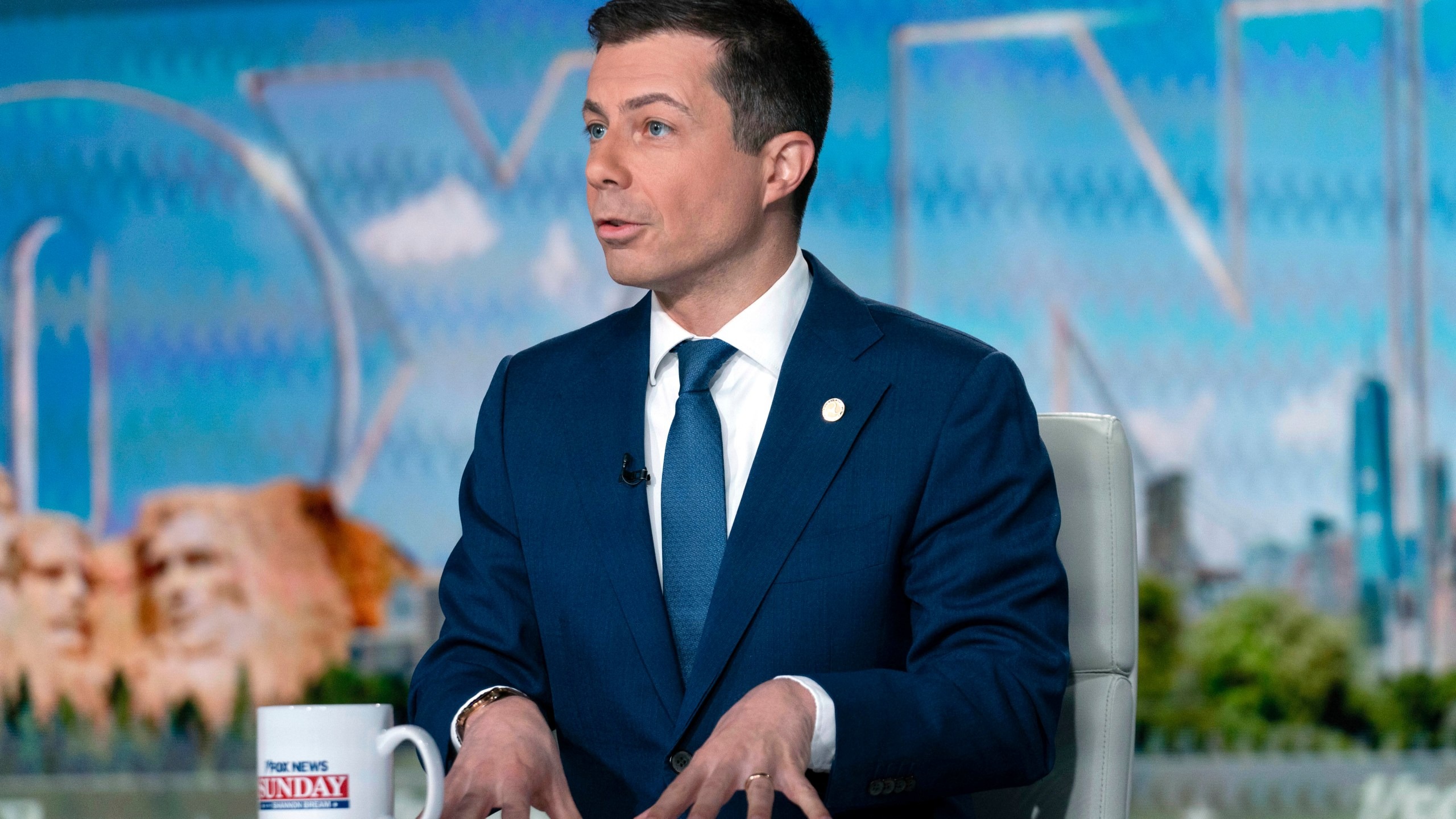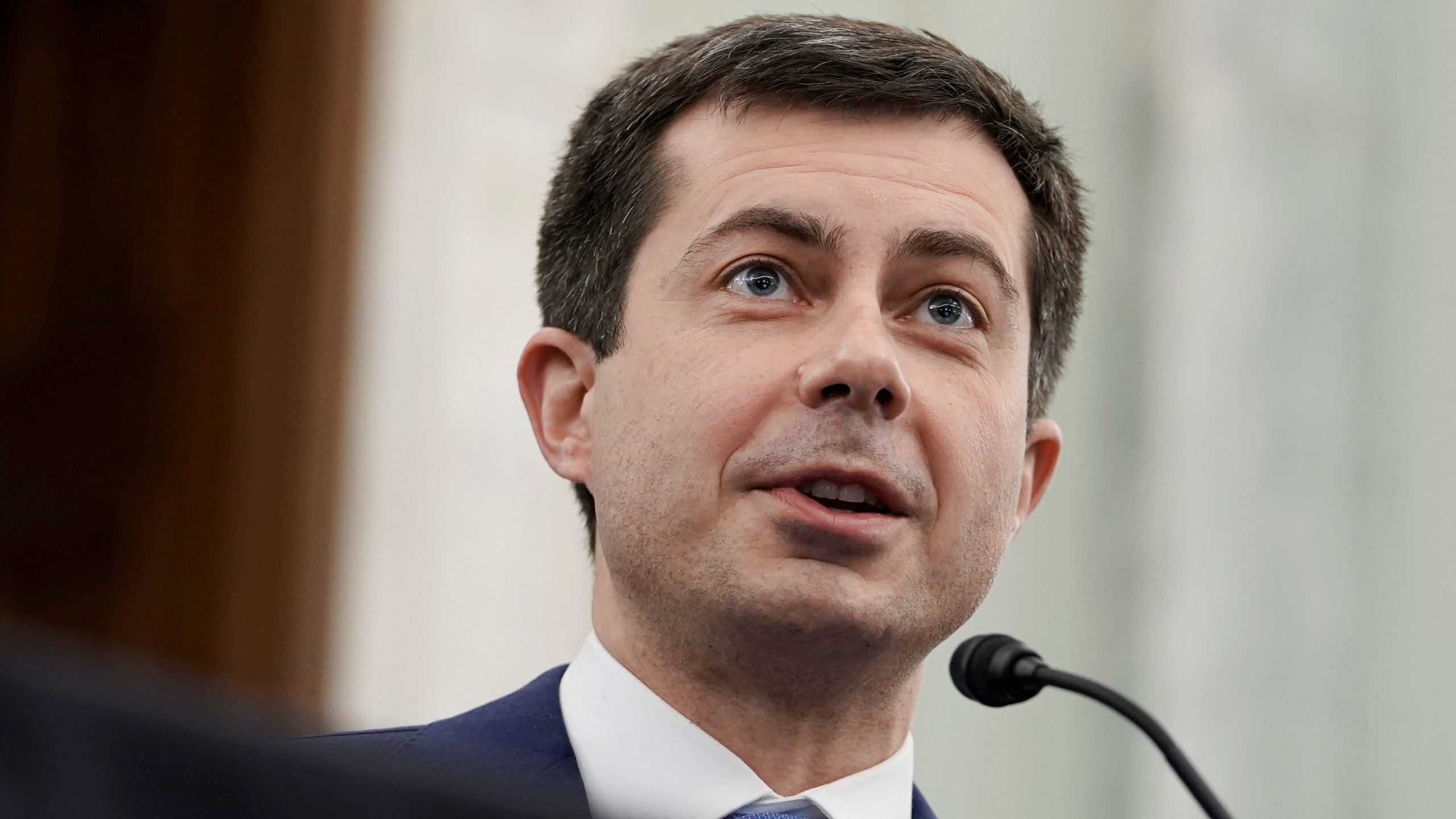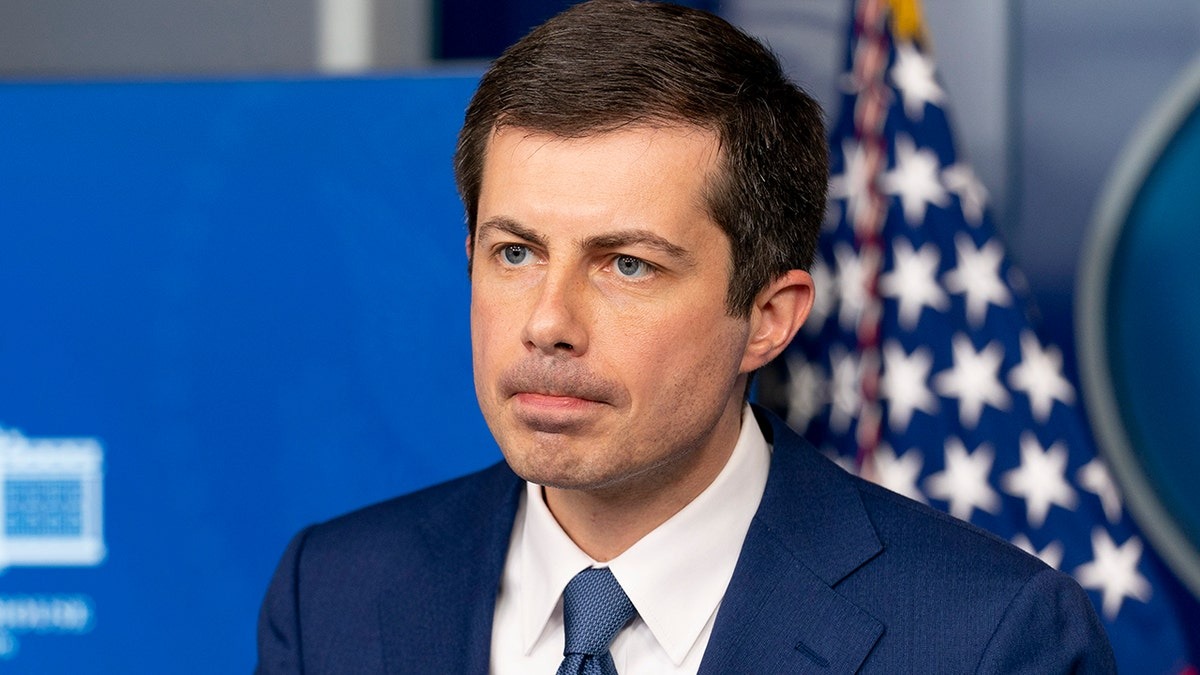U.S. Secretary of Transportation Pete Buttigieg recently addressed the Biden administration‘s push for electric vehicles (EVs), emphasizing that the drive isn’t solely for environmental benefits.
During a discussion with Fox News’s John Roberts, which touched on Tesla’s sales decline and Ford’s workforce reduction at its F-150 Electric Lightning plant, Buttigieg clarified the administration’s stance on EVs.
Buttigieg pointed out that consumer interest in electric vehicles has consistently grown yearly, highlighting that the dip in Tesla’s sales might be attributed to increased competition from other major automakers like GM, Ford, and Stellantis. This competition is a healthy sign of the automotive industry’s inevitable shift toward electric vehicles.

Buttigieg (Credits: WIVB)
The secretary stressed the importance of the United States’ leading in the EV market to avoid falling behind global competitors, particularly China.
He underscored President Biden‘s commitment to ensuring that electric vehicles are manufactured in the U.S., supporting American jobs and the economy. Buttigieg’s remarks shed light on the strategic economic reasons behind the push for EVs beyond their environmental advantages.
He also touched on the criticality of claiming a leadership position in the changing automotive sector to secure economic and competitive advantages for the U.S., particularly in manufacturing EVs domestically.

Pete Buttigieg giving a speech (Credits: NPR)
This focus is not only about transitioning to more sustainable transportation options but also about rejuvenating American manufacturing and securing its foothold in a future-oriented industry.
Buttigieg likened the current transition to electric vehicles to past technological shifts, suggesting that the automotive industry is now pivoting towards EVs just as society moved beyond landline phones.
According to him, this move is inevitable and essential for maintaining the competitiveness of the U.S. economy, especially given China’s strides in the EV market.
Thus, The administration’s efforts aim to reverse any advantage China gained during the previous administration. They make it clear that adopting EVs and enhancing their production in the U.S. is seen as an economically savvy move that benefits the country’s industrial landscape, workforce, and long-term economic health.























